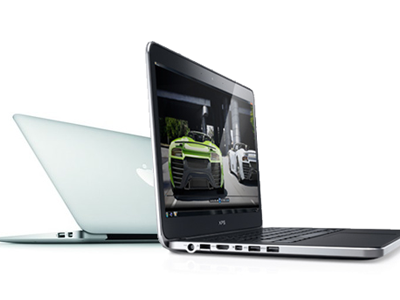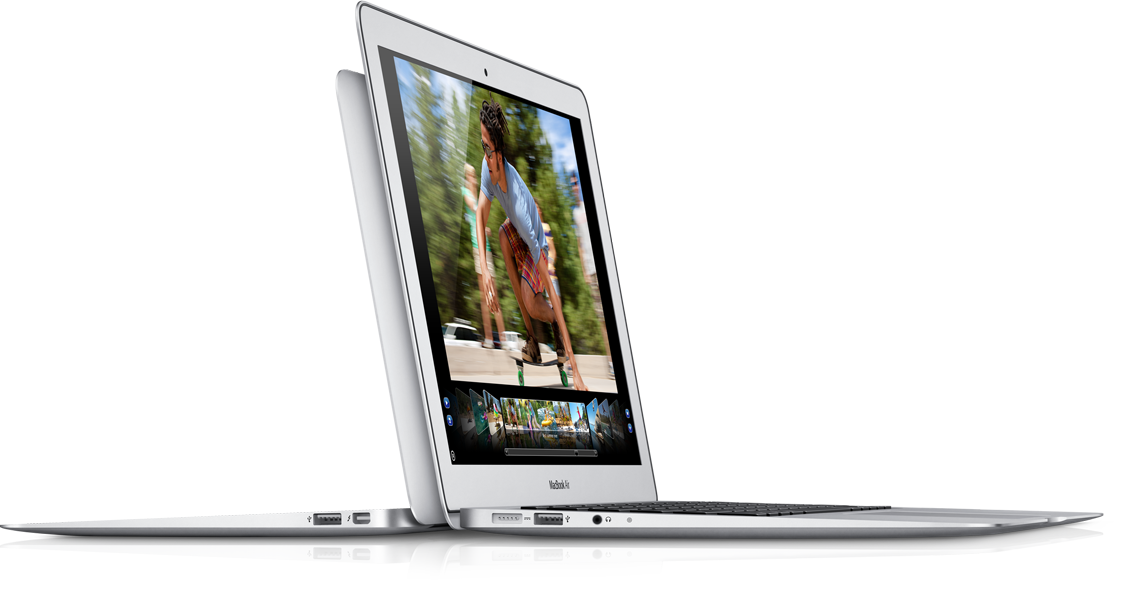MacBook Air Alternatives
As much as Apple would like you to believe the MacBook Air is the only notebook of its kind, there’s a whole world of Ultrabook alternatives out there.

Should You Skip The Apple MacBook Air?

If you’ve been a regular reader of Tom’s Guide for the past three years, you might remember the very first Tom’s article I wrote: Why NOT To Buy A MacBook Pro. Well, you’ll be happy to know that my anti-Apple sentiment has not waned over the years, and now I’m back to tell you why NOT to buy a MacBook Air.
Apple’s grandiose marketing techniques may have you think that the MacBook Air is a one-of-a-kind platform, but it’s really just an “Ultrabook” – a term trademarked and defined by Intel. Essentially, an Ultrabook is an exceptionally portable laptop (generally very thin with remarkable battery life) that offers nearly the same performance of a full-size laptop.
Giving credit where credit is due, Apple’s MacBook Air is largely responsible for popularizing the Intel-inspired Ultrabook form factor, which, not without some sense of irony, is significantly helping Windows notebook sales fend off the tablet invasion. The growing Ultrabook popularity has also meant that more manufacturers are giving the form factor a shot, offering consumers something Apple doesn’t want them to have – a choice.
Apple’s one-size-fits-all approach doesn’t fit everyone, and that’s why it’s important to know what your other options are. We’ve put together a list of worthwhile Ultrabook offerings from Acer, Asus, Dell, Samsung, and Sony that each have their own little something extra to offer.
Sign up to get the BEST of Tom's Guide direct to your inbox.
Get instant access to breaking news, the hottest reviews, great deals and helpful tips.
Current page: MacBook Air Alternatives - PC Equivalents to MacBook - Tom’s Guide
Next Page MacBook Air Specs - Is the MacBook Air Worth It? - Tom’s Guide-
halcyon Very nice. I especially like the Dell, Asus, and Samsung pieces. While I may prefer OS X from a UI standpoint, I love this what these have to offer enough that I'd make the sacrifice.Reply -
fudoka711 While I know many of us like to bash Apple, I like how this article wasn't focusing on why Apple sucks, but instead focused on why the competition is better, or at least probably better to the average consumer. Props to Mr. Escallier for outlining each vendor's pro's/con's in comparison to each other and the MBA.Reply
If I had to choose, I'd get the Zenbook because I love its design and 1080p output. Not gonna be gaming on it, sadly, but watching movies on it would be great. Plus I love the design. -
altriss Replybut it’s really just an “Ultrabook” – a term trademarked and defined by Intel
without beeing specially an Aple fan, I find this stupid. Be honest if Aple hadn't created McBookAir, Intel would never had the Idea of UltraBooks.
By the way I agree with fudoka711 about the general view on this article. Nice to see than PC builders finally created something that is worth a macbook air!
-
unstable hackintosh?its not unstable at all if you know what your doing everything works just fine and app store also so i dont see a problem...Reply
-
quantumrand NotFastEnoughHybrid hard drives negate a lot of what makes the Macbook Air great.Reply
My counter argument: You can go with the Sony Vaio T-Series with a hybrid drive and save $400, taking a small hit in load times for apps you don't use often, or you can go with the T-Series with a SSD and save $200 and get the same SSD performance that "makes the Macbook Air great." :-)
altrisswithout beeing specially an Aple fan, I find this stupid. Be honest if Aple hadn't created McBookAir, Intel would never had the Idea of UltraBooks.
If you want to go with who came first, Gateway had the very first "subnotebook" form factor with the Gateway Handbook back in 1992.
In 2002, Sharp had its Ultranotebook PC-UM20. It used a specialized Ultra-Low Voltage Intel processor (just like today's Ultrabooks) and was only .65 inches thick, thinner than even the current MacBook Air. I'd argue that this was the first "Ultrabook" in the non-Intel defined sense of the term.
In 2004, four years before the MacBook Air, Sony released the PCG-X505. It featured the same processor specs as the full-sized laptops of its time, but was 10.4" laptop that was only 0.8 inches thick.
There was also the Lenovo ThinkPad X300 which was a contemporary of the MacBook Air (released just weeks after the Air) and was actually thinner.
Apple was by no means the pioneer of the Ultrabook platform. The MacBook Air just happened to be the most well-known one. If Apple didn't exist, Intel would still have gone forward with its "Ultrabook" concept. I would absolutely not give Apple credit with coming up with the Ultrabook idea. It gets credit for popularizing it, and that's all. -
DjEaZy ... MacBook Air Alternatives? Without OS X? Except, if you make a hackentoch... but then you can take the original...Reply -
halcyon TBH, while the MacBook Air and its Ultrabook derivatives are nice enough I don't think I'd want to give up any of what my 15" notebook has to offer in terms of performance just to save a few pounds that, by carrying, can only help me stay in better shape than if I were not carrying them. The idea was novel at first and I've had my share of the MacBook Air (I've had 3) and my wife now has one but I'd rather carry my 15" notebook.Reply
